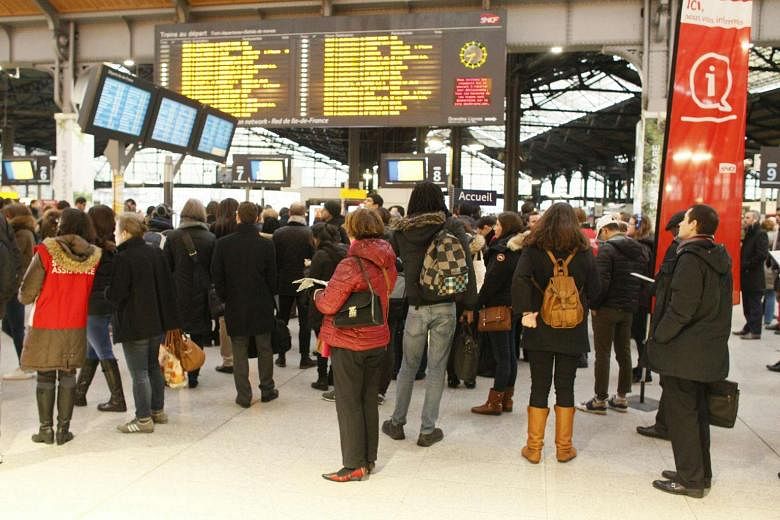PARIS (Reuters) - Train services into Paris dried up on Wednesday (March 9) as France began a day of nationwide strikes and protests against far-reaching labour reforms, with the Socialist government hoping to prevent simmering discontent among students from boiling over.
Student groups have joined hard-line labour unions in calling for a national day of protest against Labour Minister Myriam El Khomri's labour-law reforms, the government's latest attempt to bring down an unemployment rate above 10 percent.
The reforms put almost all aspects of the country's strictly codified labour relations rules up for negotiation.
Everything from maximum working hours to holidays and pay on rest breaks will be open to scrutiny in an attempt to make life less onerous for business, but the main focus is on proposed measures to limit the cost of laying off workers.
The government and business leaders argue the reforms will encourage companies to take on more workers on permanent contracts rather than temporary ones, favouring young people in particular, but unions and some on the left of the ruling Socialist Party see an undue threat to job security.
The demonstrations take place on the same day as a national rail strike. The authorities said commuter traffic queues into a rainy Paris were longer than usual early on Wednesday morning, while only one in three trains into the capital were running.
Eurostar services between Paris, London and Brussels will also be affected, the operator said.
Some 144 marches and protests will be held nationwide, according to CGT, France's biggest union.
President Francois Hollande will keep a close eye on the number of students on the streets, keen to avoid a repeat of the massive student protests 10 years ago that forced former president Jacques Chirac to withdraw his labour reforms.
Prime Minister Manuel Valls has already postponed the presentation of the reforms to cabinet by two weeks, a sign that the government might water down its plans, which have divided lawmakers in the ruling Socialist party.
The government is still holding talks with unions and hopes to convince moderate ones such as the CFDT, the country's second-biggest, to approve the measures, preventing the creation of a unified front against them.
The labour reforms are set against a backdrop of sluggish economic growth, the underlying drag on getting people back to work. The Bank of France forecast on Wednesday that the economy would grow just 0.3 per cent in the first three months of this year, revising downwards its estimate of a month ago by 0.1 percentage points.

